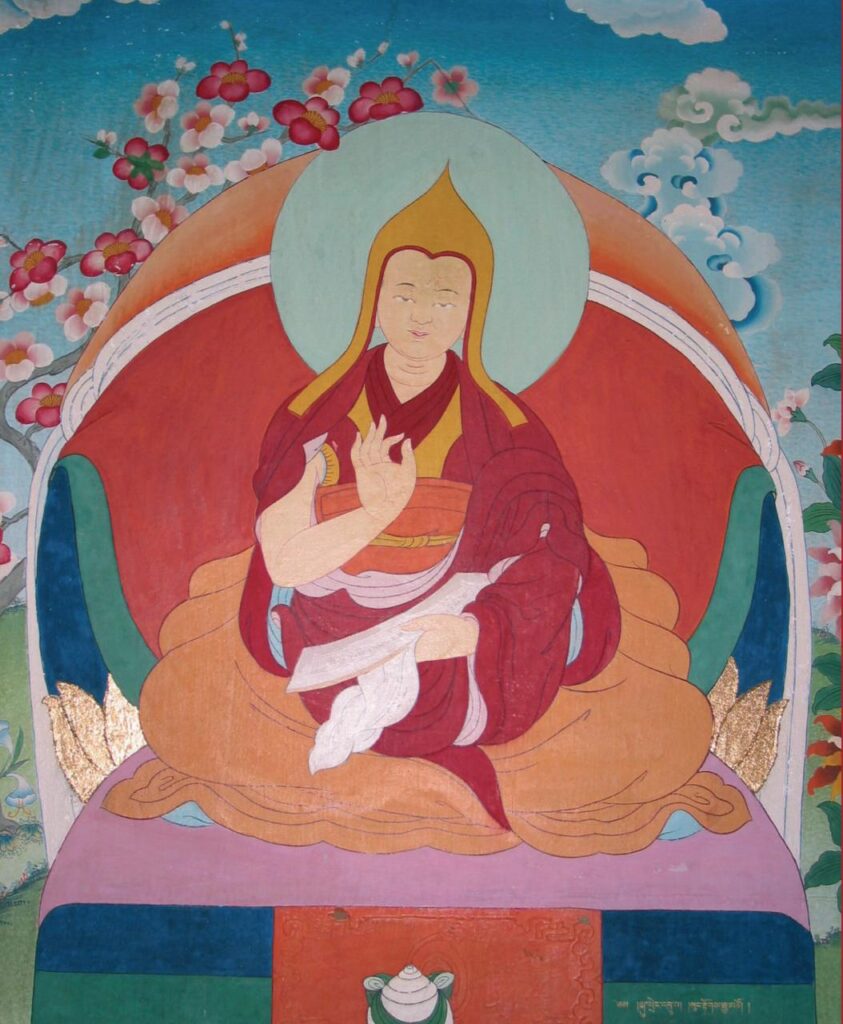

The Ninth Dalai Lama–Lungtok Gyatso (1805–1815)
Lungtok Gyatso, the Ninth Dalai Lama, was born on December 1, 1805, in Dan Chokhor, a small village in the Kham region of eastern Tibet. His parents, Tenzin Choekyong and Dhondup Dolma, were of humble origins, yet his birth was marked by auspicious signs, drawing the attention of religious leaders across Tibet.
In 1807, the Seventh Panchen Lama, Lobsang Tenpai Nyima, officially recognized the young boy as the reincarnation of the Eighth Dalai Lama, Jamphel Gyatso. A ceremonial procession escorted him to Lhasa, where in 1808, the Panchen Lama performed the tonsure ceremony and gave him the name Lungtok Gyatso, meaning “Ocean of Supreme Realization.”
In 1810, he was formally enthroned at the Potala Palace amid traditional rituals and public celebrations. His novice monk vows were administered by the Panchen Lama in 1813, formally initiating him into the monastic order.
Despite his promising beginnings, Lungtok Gyatso’s life was heartbreakingly brief. He died in 1815 at the tender age of nine, before he could assume full responsibilities as the spiritual and temporal leader of Tibet. His early passing was a profound loss for the Tibetan people and marked the beginning of a tragic pattern: four successive Dalai Lamas would pass away before reaching the age of 22.
While Lungtok Gyatso did not leave behind political achievements or religious writings, his brief life nonetheless reaffirmed the continuity of the Dalai Lama lineage—an unbroken spiritual thread that unites Tibet’s identity, faith, and leadership.
His recognition and enthronement served as a stabilizing force during a time of uncertainty, reinforcing the enduring institution of the Dalai Lamas. Even in his short lifespan, Lungtok Gyatso symbolized the resilience and sacred nature of Tibetan reincarnate traditions.
Though his voice was never fully heard on the world stage, his presence echoed the hopes of a people who looked to the Dalai Lama as a beacon of spiritual guidance. His early departure became a solemn chapter in Tibetan history—reminding future generations of both the fragility and strength of their spiritual heritage.
